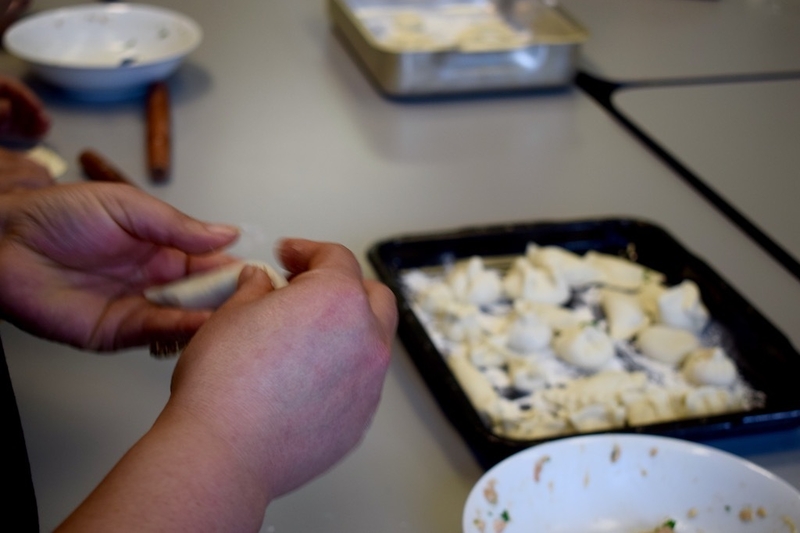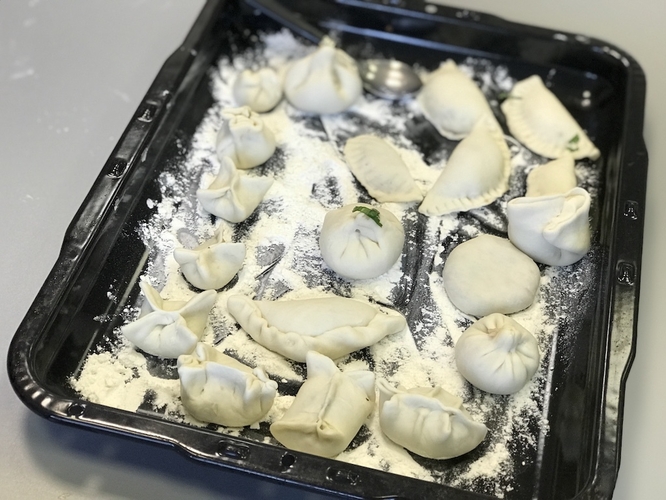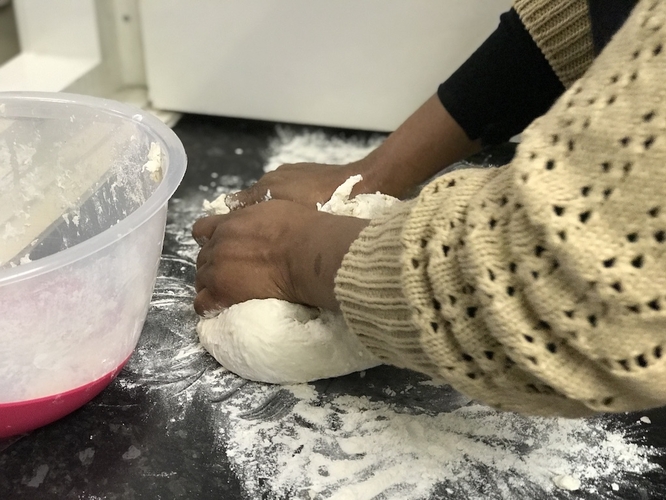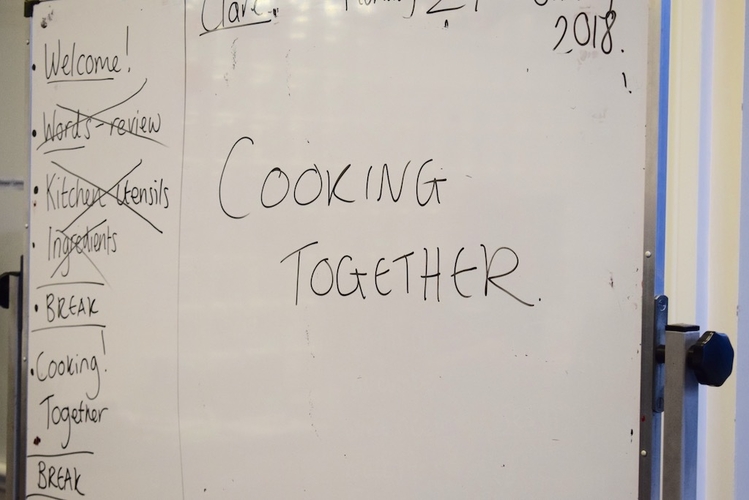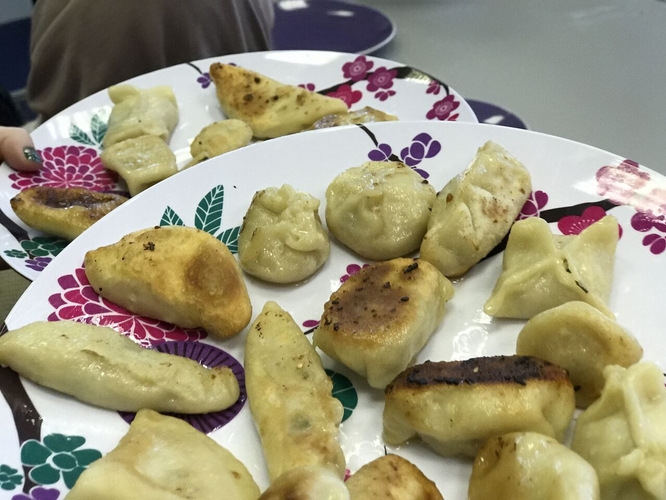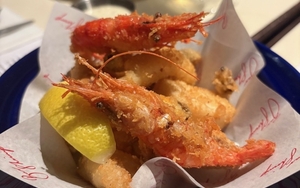Lucy Tomlinson visits Levenshulme, where a social enterprise aims to teach English through cooking
Another day, another foodie assignment. I’m sitting in a lovely Victorian building that is filled with the kind of buoyant atmosphere big restaurants wish they could buy. Despite the rain outside, the room is warm and the windows gently clouding with steam as I sip cardamom tea. My stomach gently grumbles in quiet anticipation.
Although I’m here to write about food, I’m not here to review a new, under-the-radar restaurant, or at least, if I am , it’s one where thirteen chefs and their helpers are all sat around chatting and laughing while The Beatles la la la cheerily in the background.
In actual fact, I’m attending one of the Heart & Parcel cooking and English language classes at the Northmoor Community Centre in Levenshulme. The potential chefs are women from local migrant communities who are here to learn English in a relaxed environment whilst chopping, stuffing and pinching up a feast between them.
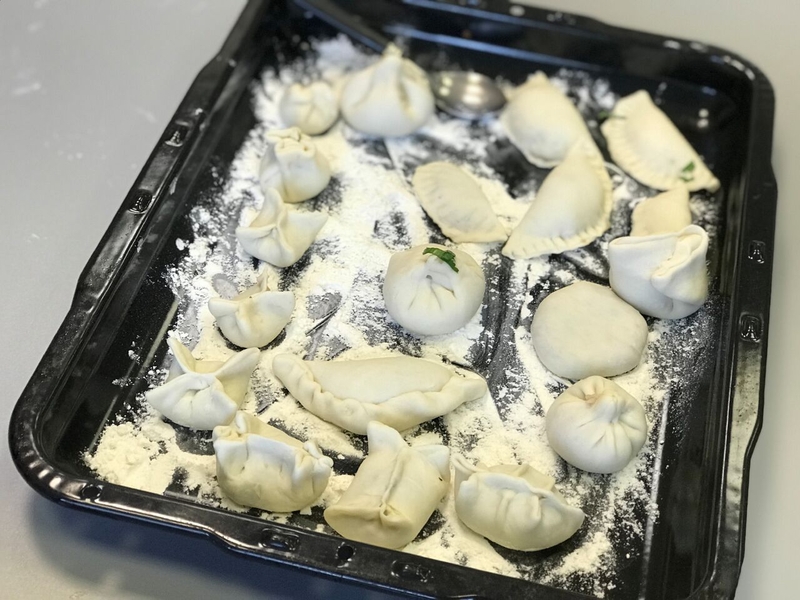
The heart of Heart & Parcel is the dumpling in its many guises: Polish pierogi, Spanish empanadas, Middle Eastern kibbeh, fortune cookies and more. Today’s parcel is the Chinese guotie dumpling, and we are being led by Clare Courtney, a qualified and very experienced ESOL (English for Speakers of Other Languages) teacher.
Clare also happens to be a phenomenal cook, who learnt to make dumplings whilst living in China, and founded Heart & Parcel in 2015 alongside her friend Karolina Koścień in response to the state of ESOL provision delivered by the Government.
"The funding was going down and down so we just wanted a space where women didn’t have to pay, that they could come to a session and enjoy themselves," says Courtney.
"I also found that the standard ESOL classes weren’t fitting everybody. If women didn’t have a formal education background then they were finding it difficult to concentrate in a classroom environment, so we just wanted to take all the pressure away.
"It’s also important for people to get out of the house and have fun, make friends and share experiences.”
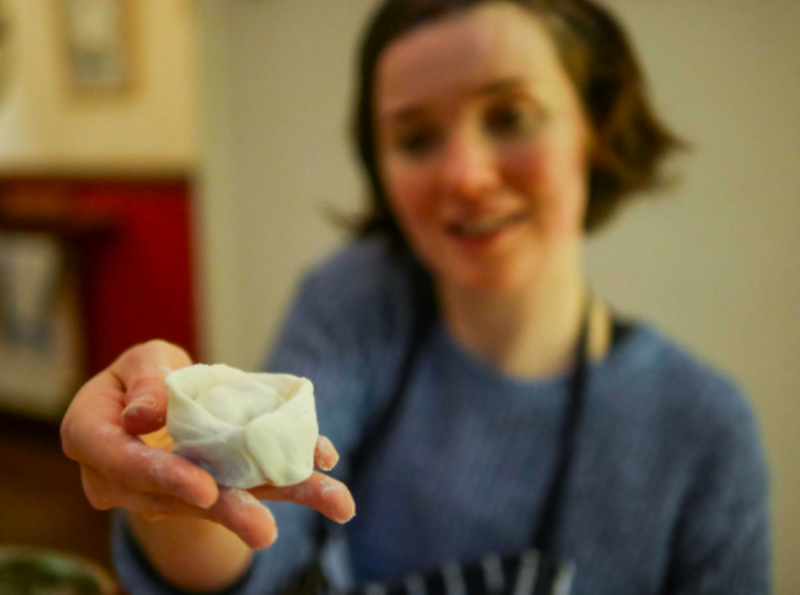
It was an idea that was itself borne out of friends getting together: “Karolina and I just love cooking. I do dumplings from China, she does dumplings from Poland, we used to get together with a bottle of wine and have a chat and fold. We realised that as we were folding we were chatting about lots of different things and it was really nice to do something with your hands and let the conversation flow.”
"Some of the women have been in situations where they haven’t been able to make choices - we want to empower them to do that"
I was here for the food, but was actually ended up being just as impressed by the teaching. Clare guided the class gently through verbs and nouns by naming cooking equipment and the activities associated with it. The physical presence of the objects that the learners were all familiar with, plus a bit of cooking charades, meant that the women were confidently volunteering answers and soon we were all laughing and joking.
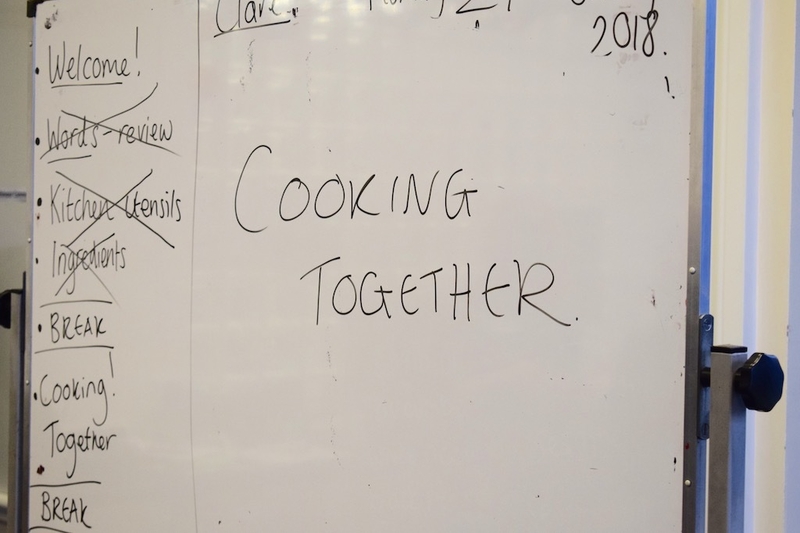
Sample ingredients come out next and as lemons and limes mingled with notebooks and pens we discussed the universality of some of the ingredients and the similarities between Bangladeshi and Chinese cuisines. While I attempted to de-pip a lemon, Habiba* advised me on how to make a tea from fresh ginger that will be good for my throat.
Food opens up so much from descriptions, memories and emotions to the more prosaic features of daily life such as quantities and timings – all essential for migrant women learning to navigate both their new community and the English language.
During break I took the chance to ask the volunteers about their experiences. Helen told me, “It’s a fantastic project because it benefits the volunteers as well as the women who attend, Clare does an awful lot of work on finding out what the volunteers want to get out of it. It’s so positive it makes you feel quite loving towards Manchester.”
Reciprocity is an important concept here – volunteers aren’t here just to listen and help but share their own stories too.
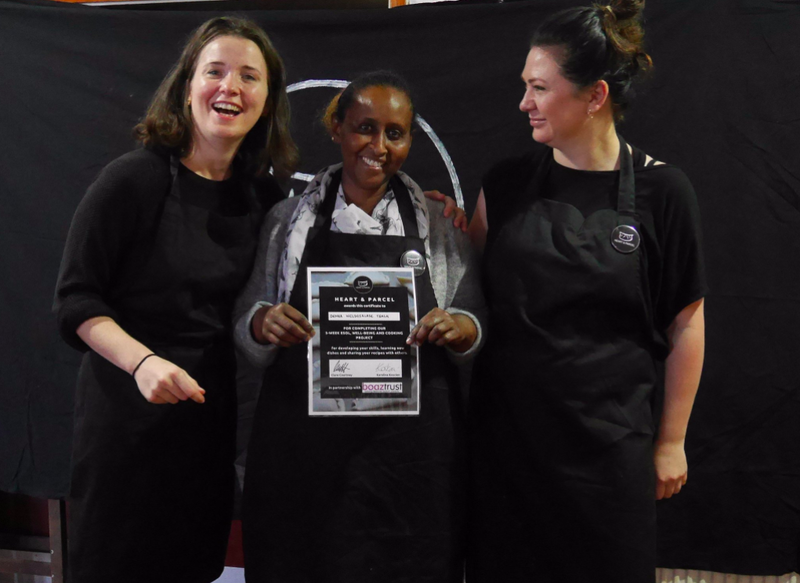
Elizabeth*, a learner on a previous Heart & Parcel course, has signed up as a volunteer, so the Heart & Parcel formula obviously gives good results. A trained chef, Elizabeth is in charge of kneading the dough that the learners will roll and pinch into dumplings, all bringing their own styles to the mix. It’s an element of the course that Clare says is subtle but important.
“Our recipes are based on being able to make decisions, however small," she says. "So when we make cookies for example, there are choices about what fillings to use. Some of the women attending have been in situations where they haven’t been able to make choices, so we want to empower them to do that.
“For our learners it’s about building up their confidence, having a chat, finding the connections. Everyone has a frying pan; everyone has a grater so we can all talk about that. We can all learn from each other.”
Heart & Parcel raise a large portion of their funds through selling dumplings at market stalls and running pop-up supperclubs
The current Heart & Parcel workshops are women-only affairs. Although Clare and Karolina often work with men from migrant communities on other projects, they felt that the Government cuts affected women the most because men are more likely to get work and be more exposed to the English language in their every day lives.
There is also the possibility that the women most in need of the classes might also be those most discouraged by mixed classes. This approach reflects a growing trend to focus outreach on women, as the ‘heart of the home’ in many traditional families women are uniquely placed to pass on their learning to other family members, especially children.
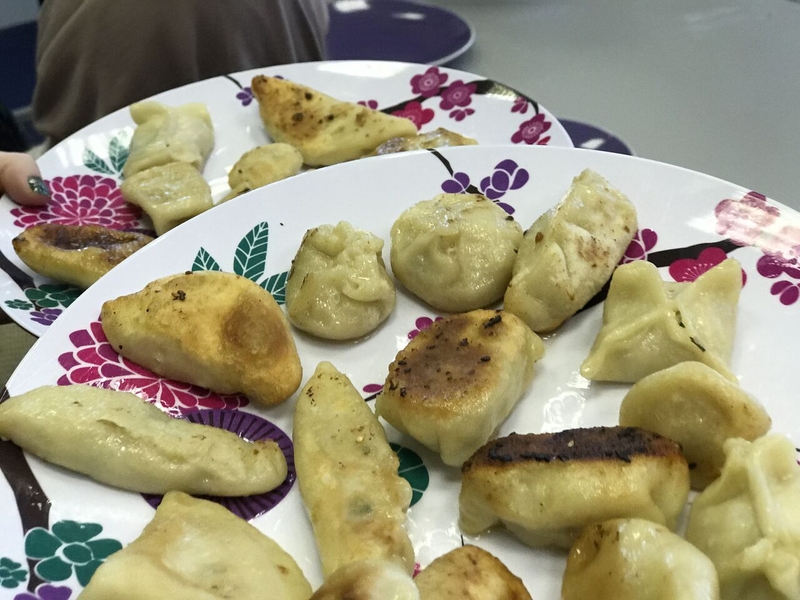
I’m lucky enough to get to try a variety of cuisines from many fine chefs, but this meal was something special. The dumplings were crisp yet tender, and like all the best food, eaten slightly too hot because we just couldn’t wait any longer. Fragrant steam escaped from hastily bitten-into dumplings, the salad was fresh and zingy, while an egg-and-tomato scramble gently soothed.
Heart & Parcel raise a large portion of their funds through selling dumplings at market stalls and running pop-up supperclubs, and I make a mental note to seek the next one out, or else my tastebuds may never forgive me.
After our meal together, the learners helped with the cleaning or hurry back to their various responsibilities at home, leaving in smiling groups. I gave one of the learners, Zahra* a lift home. She didn’t take part in the meal as she was following the Christian fast of Niveneh, so she left with a large box of dumplings and salad. I presumed she was saving them for later, until she told me she was taking them to a friend who normally attends the group but couldn’t make it that week.
This made a perfect coda to the morning; a physical embodiment of the Heart & Parcel idea - that giving begets giving, a parcel of love wending its way out into the community, back into people’s homes.
*Some of the women’s names have been changed to respect their privacy
Heart & Parcel
To find out more please visit the Heart & Parcel website. Heart & Parcel will be launching a cookery book later year, showcasing recipes from women Clare and Karolina have worked with throughout the project. For more updates, follow on Twitter @heartandparcel) or Facebook.
